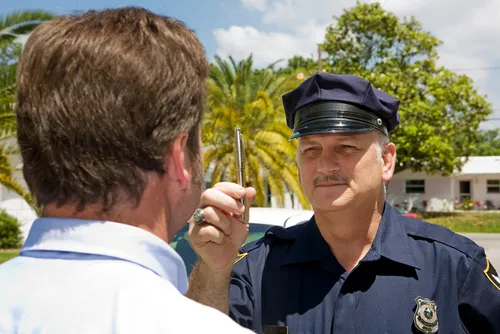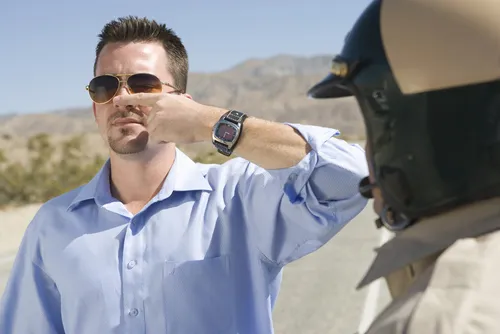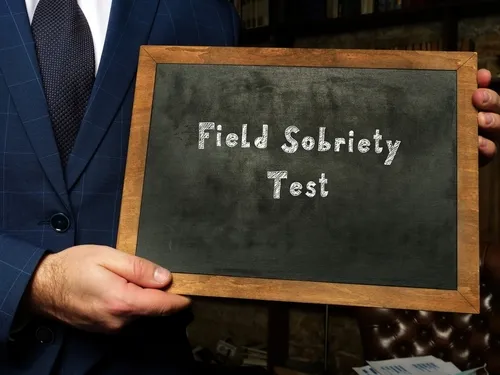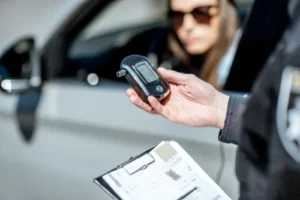Driving under the influence (DUI) is a serious charge that can have lasting consequences on your life. In South Carolina, police officers often rely on field sobriety tests (FSTs) to determine whether a driver is impaired. These tests are designed to measure coordination, balance, and cognitive function, but they are far from foolproof.
If you have been charged with a DUI in Greenville, understanding how field sobriety tests work—and their potential flaws—can be critical to your defense. A knowledgeable Greenville DUI defense lawyer can analyze the circumstances surrounding your arrest and challenge the validity of these tests in court.
Don’t wait to seek legal help for a DUI charge. Contact DUI Lawyer Greenville today for a free case evaluation!
Standardized Field Sobriety Tests
When a law enforcement officer pulls you over on suspicion of driving under the influence, they may ask you to perform a field sobriety test to establish whether you’re intoxicated.
The National Highway Traffic Safety Administration (NHTSA) has established three standardized field sobriety tests (SFSTs) that officers commonly use during DUI stops. These tests aim to assess a driver’s level of impairment, but they are subjective and can be influenced by many factors unrelated to alcohol consumption.
Horizontal Gaze Nystagmus (HGN) Test
The HGN test is used to detect involuntary jerking movements of the eye, which may become more pronounced under the influence of alcohol or drugs. During this test, the officer will ask the driver to follow an object, such as a pen or flashlight, with their eyes while keeping their head still. The officer looks for signs of impairment, including an inability to smoothly track the object, excessive jerking, or the onset of nystagmus (eye jerking) at lesser angles.
While the HGN test is considered one of the more scientific field sobriety tests, it is not always accurate. Several medical conditions, including inner ear disorders, neurological issues, and even fatigue, can produce similar eye movements. Additionally, improper administration of the test by an untrained officer can lead to unreliable results.
Walk-and-Turn Test
The walk-and-turn test evaluates a person’s ability to follow instructions while maintaining balance. The officer will instruct the driver to take nine heel-to-toe steps in a straight line, turn on one foot, and return in the same manner. Any loss of balance, inability to walk heel-to-toe, using arms for balance, or stopping mid-walk may be viewed as signs of impairment.
Despite its widespread use, the walk-and-turn test can be challenging even for sober individuals. Factors such as uneven surfaces, poor lighting, inappropriate footwear, and medical conditions like arthritis or vertigo can negatively impact performance. Nervousness and the pressure of being scrutinized by law enforcement can also cause a person to make mistakes, leading to an unjustified DUI charge.
One-Leg Stand Test
In the one-leg stand test, the driver is asked to stand on one foot with the other foot raised about six inches off the ground. The officer instructs the driver to hold this position while counting aloud until told to stop. Swaying, hopping, using arms for balance, or putting the raised foot down before instructed can all be considered signs of intoxication.
This test, like the walk-and-turn, can be difficult for individuals with medical conditions affecting balance, coordination, or motor skills. Older adults, those with back or leg injuries, and people who suffer from anxiety may struggle to perform this test correctly, regardless of their sobriety.
Can You Refuse Field Sobriety Tests in South Carolina?
Yes, drivers in South Carolina can legally refuse to take field sobriety tests without immediate legal penalties. These tests are voluntary, meaning you are not required by law to participate. Field sobriety tests are often unreliable, and refusing them can sometimes be a strategic decision to prevent the officer from collecting subjective evidence against you.
If you refuse a field sobriety test, a police officer may arrest you based on other evidence such as breath or blood tests. Refusing a breathalyzer or blood test leads to an automatic license suspension in South Carolina.
What Happens If You Fail Field Sobriety Tests in Greenville, SC?
Field sobriety tests are typically administered while drivers are under pressure. The stress of being stopped by a police officer and then being asked to perform these tests could cause sober people to fail. The high levels of stress and anxiety could easily impact your ability to stay coordinated, concentrate, or follow instructions.
Keep in mind that failing a field sobriety test doesn’t mean that you are guilty of DWI/DUI. There might be several explanations for why you were unable to pass the test, including health conditions or other environmental factors that are beyond your control.
Your lawyer could challenge the results of the tests based on the following conditions:
- The officer administering the test didn’t follow NHTSA’s instructions, invalidating the test.
- The officer administered non-standardized field sobriety tests without good reason.
- You have a legitimate medical reason as to why you performed poorly on the test.
If you or a loved one has been arrested for DUI/DWI after failing a field sobriety test in Greenville SC, you should get in touch with a DUI Lawyer in Greenville as soon as possible to help make sure your rights are well protected.
DUI Field Sobriety Testing Can Be Inaccurate
Research has shown that field sobriety testing is not always accurate in determining if a driver is impaired. The National Highway Traffic Safety Administration (NHTSA) conducted studies on the accuracy of standardized field sobriety tests. FSTs had varying levels of reliability.
- Horizontal gaze nystagmus test: 77% accurate
- Walk and turn test: 68% accurate
- One-leg stand test: 65% accurate
When all three tests were used together, they were correct 82% of the time. However, this still leaves a considerable margin for error.
Law enforcement can make mistakes when administering and interpreting field sobriety tests. Also, various factors like nervousness or medical conditions can influence drivers’ performance. While breathalyzer tests can at times give false positive results, they are more objective in measuring blood alcohol content (BAC).
Factors That Can Affect Field Sobriety Tests
Field sobriety tests are far from perfect. Numerous factors can influence performance, leading to inaccurate conclusions about a person’s level of impairment. Some of the common issues include:
Medical Conditions
Certain medical conditions, such as neurological disorders, diabetes, ear infections, and musculoskeletal problems, can affect coordination, balance, and eye movement. Even individuals with past injuries or chronic pain may struggle to complete these tests successfully, leading to a false indication of impairment.
Environmental Factors
The conditions under which field sobriety tests are conducted can significantly impact the results. Uneven or sloped road surfaces can make balancing difficult, while poor lighting can make it hard to follow instructions or focus on an object during the HGN test. Weather conditions such as rain, wind, or extreme temperatures can also interfere with test performance.
Footwear and Clothing
The type of clothing and footwear a person is wearing at the time of the test can also affect their performance. High heels, sandals, boots, or loose-fitting shoes may make it difficult to walk heel-to-toe or balance on one leg. Tight or restrictive clothing may limit movement and make certain test maneuvers more difficult.
Anxiety and Nervousness
Being pulled over and subjected to a field sobriety test can be an extremely stressful experience. Even sober drivers may experience anxiety that causes them to stumble, hesitate, or misunderstand instructions. This nervousness can be mistaken for intoxication, leading to an unwarranted arrest.
How a Greenville DUI Lawyer Can Challenge Field Sobriety Test Results
If you have been charged with a DUI based on field sobriety test results, a skilled Greenville DUI lawyer can analyze the details of your case and challenge the reliability of these tests in court. Some of the key defense strategies include:
Questioning the Officer’s Training and Administration of the Test
There are strict protocols for administering field sobriety tests in South Carolina, and police officers must complete thorough training. However, inexperienced officers can make mistakes. If the police officer was not properly trained, failed to provide clear instructions, or deviated from standard procedures, the court may rule the field sobriety test results are inadmissible.
Highlighting Medical and Physical Conditions
Your lawyer can present medical records or expert testimony to demonstrate that a pre-existing condition, injury, or disability affected your test performance rather than alcohol impairment.
Pointing Out Environmental Factors
If the field sobriety tests were conducted on an uneven surface, in poor lighting, or under adverse weather conditions, your attorney can argue that these factors unfairly influenced the results.
Challenging the Subjectivity of the Tests
Field sobriety tests rely heavily on an officer’s judgment, which can be flawed or biased. Your lawyer may question the officer’s observations and highlight inconsistencies in their report or testimony.
Contact a Greenville DUI Attorney Today
Field sobriety tests are commonly used in DUI cases, but they are far from infallible. Many factors, including medical conditions, environmental influences, and the officer’s own biases, can lead to inaccurate results. If you are facing DUI charges in Greenville, South Carolina, you need an experienced DUI lawyer to fight for your rights.
At DUI Lawyer Greenville, we have the experience to challenge field sobriety test results and build strong defenses for clients in Greenville, Spartanburg, Anderson, and Clemson. Contact us today to discuss your case and explore your legal options. We are available 24/7 and offer a free case evaluation.









